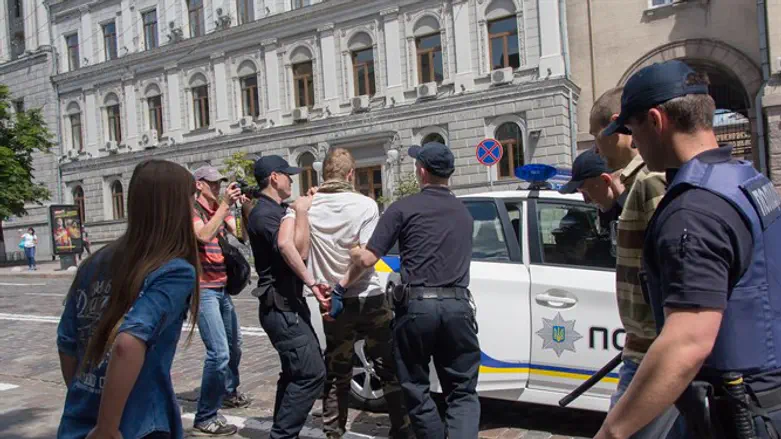
An activist against fascism who sued a Ukrainian municipality for naming a street for a Nazi SS officer has come under a campaign of intimidation, he said.
Mikhail Voroniak, a Red Army veteran, in summer sued the western municipality of Kalush near Lviv for deciding to name a street for Dmytro Paliiv, a commander of the 14th Waffen Grenadier Division of the SS, also known as the 1st Galician.
Voroniak told the Russian news site Primechaniya that he has come under a “aggressive pressures and threats of murder” since he sued. A local court last month dismissed his motion against the honor to Paliiv but Voroniak appealed to the Lviv Administrative Court of Appeals, which was scheduled to review the appeal last week.
The court postponed its deliberations to Oct. 30, Primechaniya reported Friday.
One of the threats made against Voroniak was on Facebook, where a user wrote to him: “Be afraid of your own shadow. Death to the enemies,” the news site reported.
The naming of the street for Paliiv, whose troops murdered countless Jews during the Holocaust, is part of a series of gestures honoring nationalists in Ukraine following the 2014 revolution, in which nationalists played a leading role. They brought down the government of President Viktor Yanukovuch, whose critics said was a corrupt Russian stooge.
Also before the revolution, Stepan Bandera, Roman Shukhevych and other nationalists accused of complicity in the murder of Ukrainian Jews have received honors from state authorities for their fight against Russia.
But the level and frequency of state-sponsored glorification of their actions has increased dramatically after the revolution, which sparked an armed conflict with Russian troops and separatists loyal to Moscow.
The director of Ukraine’s Institute of National Remembrance, Vladimir Vyatrovich, who recently described Shukhevych as an “eminent personality,” in May defended public displays of the symbol of the Galician SS division, a German-led unit comprising Ukrainian volunteers.
Displaying Nazi symbols is illegal in Ukraine but the Galician SS division’s symbol is “in accordance with the current legislation of Ukraine,” Vyatrovich said.